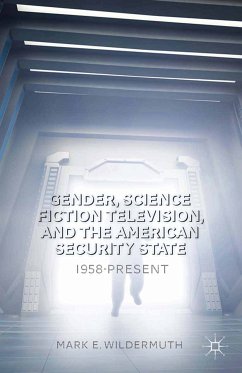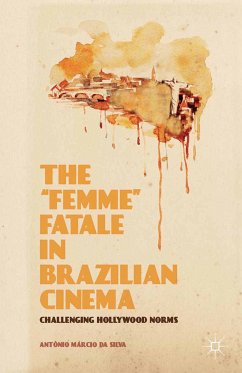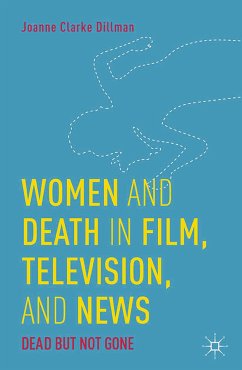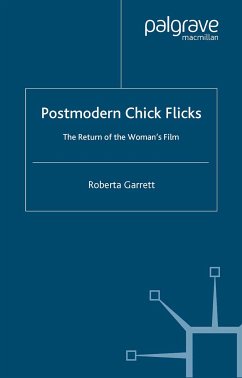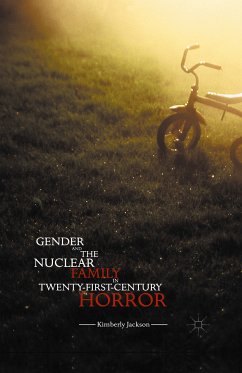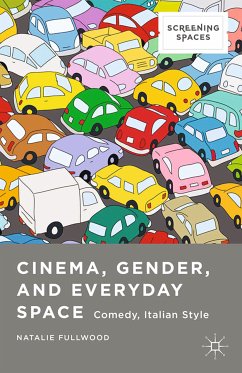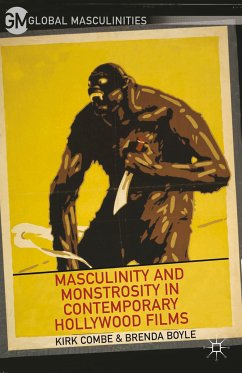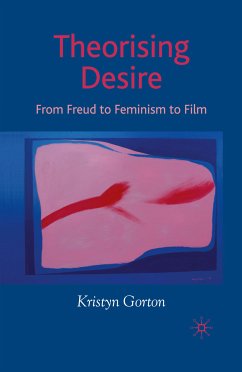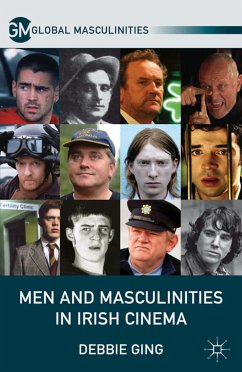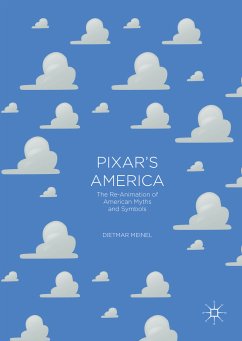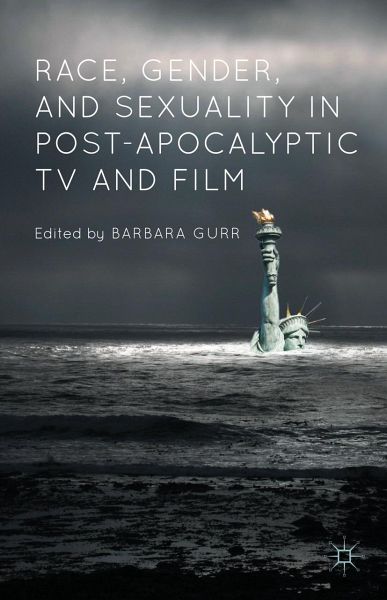
eBook, PDF
Race, Gender, and Sexuality in Post-Apocalyptic TV and Film (eBook, PDF)

PAYBACK Punkte
44 °P sammeln!






Race, Gender, and Sexuality in Post-Apocalyptic TV and Film (eBook, PDF)
Dieser Download kann aus rechtlichen Gründen nur mit Rechnungsadresse in A, B, BG, CY, CZ, D, DK, EW, E, FIN, F, GR, HR, H, IRL, I, LT, L, LR, M, NL, PL, P, R, S, SLO, SK ausgeliefert werden.
James Berger, Yale University, USA Robert Booth, University of Connecticut, USA Mary Burke, University of Vermont, USA Andrea Harris, Wright State University, USA Amanda Hobson, Ohio University, USA Sarah L. Jirek, Westmont College, USA Maura Kelly, Portland State University, USA Melissa F. Lavin, State University of New York at Oneonta, USA Brian M. Lowe, State University of New York at Oneonta, USA Kirk Lustila, University of Connecticut, USA Michelle Meagher, University of Alberta, Canada Stacy Missari, Quinnipiac University, USA Brent Strang, State University of New York at Stony Brook, USA Tracey Raney, Ryerson University, Canada J. Edward Sumerau, University of Tampa, USA
Produktdetails
- Verlag: Palgrave Macmillan US
- Seitenzahl: 183
- Erscheinungstermin: 7. Oktober 2015
- Englisch
- ISBN-13: 9781137493316
- Artikelnr.: 44169956
"Race, Gender, and Sexuality in Post-Apocalyptic TV and Film brings forth a substantial collection of scholars who delve into the social construction of gender and race in fantasy, science fiction and apocalyptic stories. Gurr has put together a collection rooted in cultural production and an examination of the intersectionality present in these worlds. This outstanding text will surely be enjoyed by students and fans alike." - Adrienne Trier-Bieniek, Professor and Chair, Sociology, Valencia College, USA
"Pop culture is filled with vampires and zombies, undead hipsters, and dubiously alive suburbanites. For this much-needed collection, Gurr has assembled a stellar set of thoughtful and provocative essays on the politics of
"Pop culture is filled with vampires and zombies, undead hipsters, and dubiously alive suburbanites. For this much-needed collection, Gurr has assembled a stellar set of thoughtful and provocative essays on the politics of
Mehr anzeigen
post-apocalyptic culture. Ranging from the gender-queer possibilities of Battlestar Gallactica and True Blood to the troubling race, class, and gender politics of The Hunger Games and The Walking Dead, these critics range wide and deep through filmand television images of a world in crisis. Students of mass media, speculative fiction, and feminist cultural studies will find this a helpful guidebook through the often confusing but always intriguing post-apocalyptic cultural universe." - Suzanna Danuta Walters, Director, Women's, Gender, and Sexuality Studies, Northeastern University, USA and author of The Tolerance Trap: How God, Genes, and Good Intentions are Sabotaging Gay Equality
"Barbara Gurr has done a fantastic job putting this collection together. The chapters are well-written, highly engaging, and cover a wide array of topics. Race, Gender, and Sexuality in Post-Apocalyptic TV and Film will make a great springboard for reflection and conversation in a range of social science, gender or media studies classes, and students are sure to enjoy reading it." - Patricia Leavy, PhD, author of Fiction as Research Practice and Method Meets Art, www.patricialeavy.com
"Barbara Gurr has done a fantastic job putting this collection together. The chapters are well-written, highly engaging, and cover a wide array of topics. Race, Gender, and Sexuality in Post-Apocalyptic TV and Film will make a great springboard for reflection and conversation in a range of social science, gender or media studies classes, and students are sure to enjoy reading it." - Patricia Leavy, PhD, author of Fiction as Research Practice and Method Meets Art, www.patricialeavy.com
Schließen
Für dieses Produkt wurde noch keine Bewertung abgegeben. Wir würden uns sehr freuen, wenn du die erste Bewertung schreibst!
Eine Bewertung schreiben
Eine Bewertung schreiben
Andere Kunden interessierten sich für


